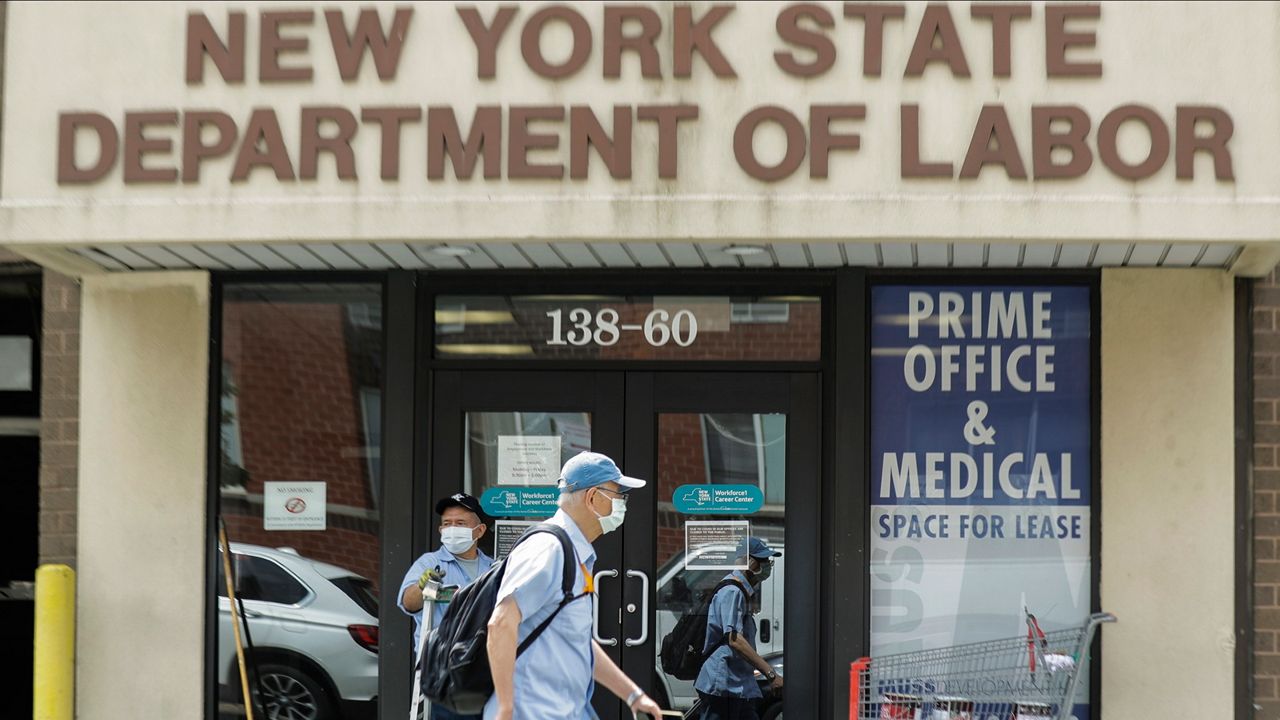More than two dozen business organizations in New York have proposed ways to address the billions of dollars in unemployment debt owed by New York to the federal government in order to relieve the burden on small businesses in the state.
The proposals released this week by the Business Council and 27 other organizations come as New York lawmakers and Gov. Kathy Hochul are debating a $227 billion budget that is due in less than a month.
The outstanding debt, more than $7 billion, is being paid through a surcharge on employers' payroll taxes. Gov. Hochul's administration has asked the federal government to waive the interest on the debt.
But the business groups believe New York needs to act.
"New York still has nearly $8 billion in outstanding federal loans, used to maintain payment of regular UI benefits during the pandemic, when the state’s reductionin-force mandate resulted in the loss of 1.7 million jobs in March 2020," the groups wrote in a letter to state lawmakers. "Since the UI system is funded exclusively by payroll taxes imposed on employers, this debt has resulted in increased, and growing, state and federal UI tax burdens, adding thousands of dollars to the payroll costs of small businesses, and hundreds of millions in increased employer costs overall."
The proposals include paying the annual interest on outstanding federal loans, which would prevent the state from adding the surcharge on monthly unemployment insurance taxes.
The state could also offset the cost of the increased taxes on employers and can use public funds to help pay down a share of the state's debt. And New York should address the impact of fraudulent payments on businesses.
New York's unemployment debt soared during the initial weeks and months of the COVID-19 pandemic as the state recorded a spike in job losses not seen since the Great Depression as businesses, schools and public gathering places closed.
Hochul has urged the federal government to step in.
"We're asking the federal government to waive the interest on these loans," Hochul told reporters last year. "We think they should. This was an unexpected occurence — literally a pandemic.
"We don't want any additional costs and we've been giving a lot of support to our businesses, a billion dollars to pay off those costs."



